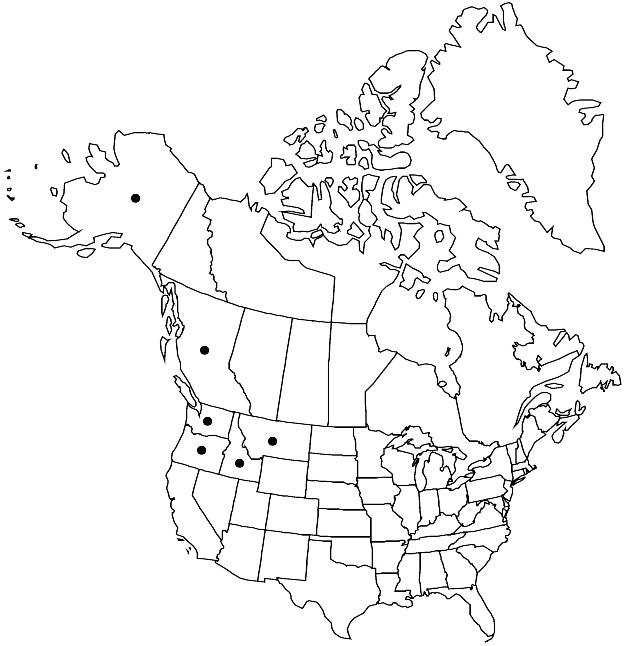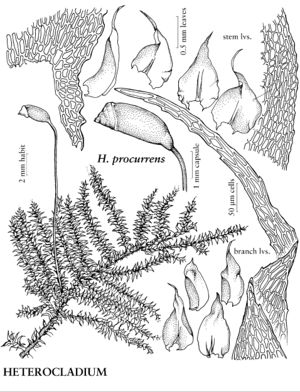Heterocladium procurrens
Ber. Thätigk. St. Gallischen Naturwiss. Ges. 1876–1877: 246. 1878.
Stems with epidermal-cells smooth. Leaves squarrose-spreading when dry or moist; stem-leaves 1–2 mm; margins serrulate; apex acuminate; costa double to mid leaf; laminal cells smooth.
Habitat: Rock, soil, humus, rotting wood, base of trees
Elevation: low to moderate elevations
Distribution

B.C., Alaska, Idaho, Mont., Oreg., Wash.
Discussion
Plants of Heterocladium procurrens appear much larger than those of the other two species in the flora due to their somewhat more regular branching and strongly spreading leaves, even when dry; the strongly spreading leaves and smooth laminal cells are distinguishing traits. Specimens of H. procurrens also frequently have a yellow-green or red-green coloration and shiny appearance while the other two species are generally dark green and dull in appearance.
Selected References
None.
